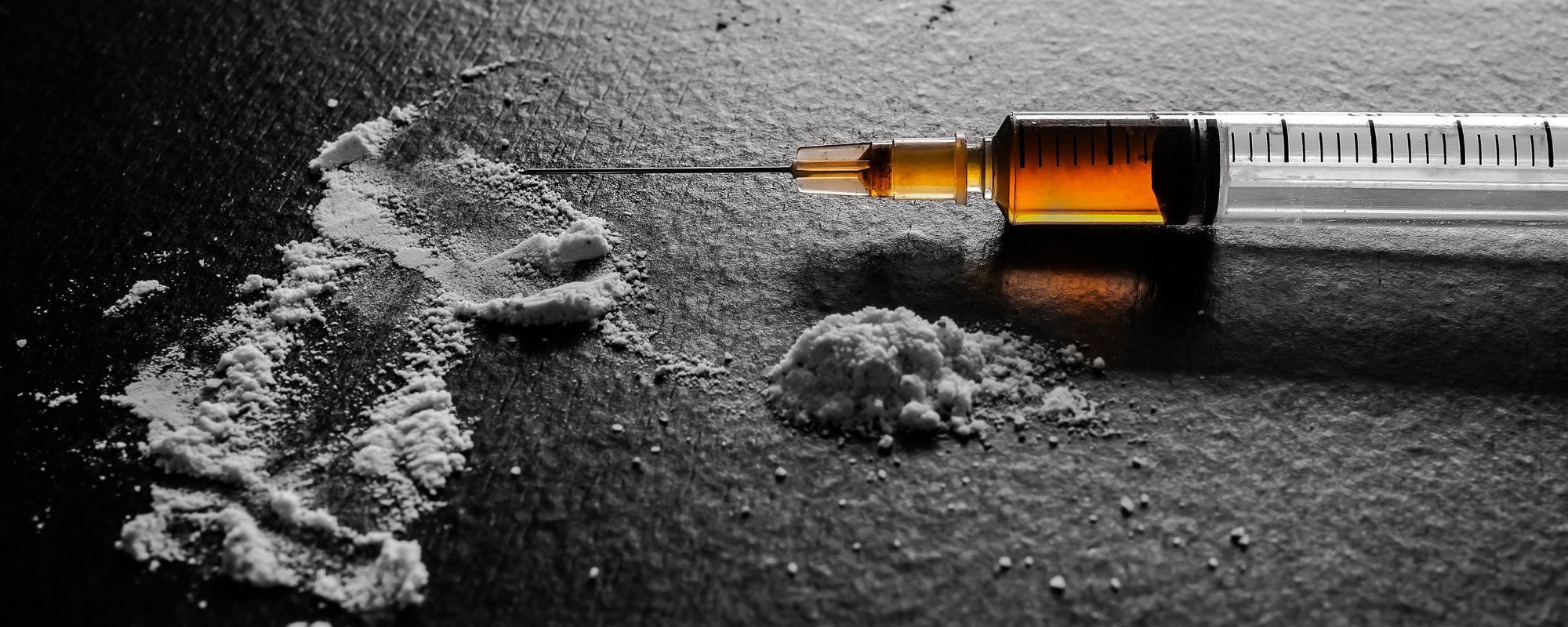In many instances of addiction, our substance abuse and maladaptive behaviors are byproducts of trauma. Unfortunate as it is, most of us go through some sort of traumatic experience, and as a result, most of us react with instinctive, emotion-based behaviors.
While the symptoms triggered by trauma typically pass, some people find themselves struggling to resolve their negative emotions triggered by the event. In cases such as these, the adverse effects linger and develop into maladaptive coping mechanisms that act as a trauma response. Tragically, coping techniques that originate as a way to deal with their emotional distress often begin to disrupt their lives as well as the lives of those around them.
To make matters worse, these reactions to trauma can worsen, devolving into intense psychological disorders. In fact, the brain may develop debilitating illnesses such as post-traumatic stress disorder (PTSD) in an effort to cope. As symptoms deteriorate a person’s ability to function, many individuals turn to substance use as a means of self-medication. Over time, individuals lose their sense of control over their self-medication routine, declining until they have a full-blown addiction. The bright side? It doesn’t have to be that way, or at the very least, stay that way.
What Is Trauma?
When used as physical content, the term trauma acts as a descriptor for the physical injury inflicted on an individual by an external force. Our main focus, however, is trauma as it is used in a psychological context. In this case, trauma is the psychological distress, often presenting as an emotional shock, that accompanies a stressful event. Often attributed to experiences in which an individual fears for their safety, trauma commonly evokes feelings of shock, grief, or outright denial. While most immediate responses to trauma are short-lived and relatively harmless, when these responses continue for extended periods, they can be detrimental to a person’s health.
Initial reactions to trauma include:
- agitation
- confusion
- anxiety
- sadness
- exhaustion
- numbness
The ubiquitous saying “fight or flight” contains two of the four main responses associated with abuse-related trauma— freeze and appease, the other reactions, are often overlooked as they are perceived as non-actions. These non-actions can lead to an individual blaming themselves for the harm inflicted upon them. For many, the shame and guilt associated with emotional and physical abuse trigger substance abuse. In fact, victims of abuse-related trauma are 9 times more likely to abuse drugs and 15 times more likely to abuse alcohol.
Signs that You’ve Suffered a Traumatic Event
When taking a look at trauma responses and trauma-related disorders, it’s important to know that psychology approaches disorders of the mind with different perspectives. Even so, the basic principles employed to determine the potential presence of a disorder and the ideal treatment methods used to heal it center around the same questions: how do you identify and diagnose these disorders, and how do you treat them so that the person may recover?
Common symptoms of trauma responses include:
- Headaches
- Lethargy
- Nausea
- Impulsivity
- Aggression
- Mood Swings
- Dissociation
- Insomnia
- Relationship Issues
- Flashbacks
When asking these questions, it’s necessary to remember that while a person can be healed, they may never return to the person they were before the trauma. Moreover, the person can still achieve mental, emotional, physical, and spiritual health and happiness in spite of the change.
In a way, psychology helps you ask, “How do I take with me the person I have become without losing the sense of who I was? And how do I grow from this pain and begin to understand myself again?”
What Is PTSD?
It could be a serious car accident, a natural disaster, or a violent crime that you survived but are still haunted by. Trauma comes in many different forms, and sometimes, it can stick with you. When trauma manifests itself as nightmares, flashbacks, avoidance, fear, guilt, anxiety, rage, insomnia, and begins to interfere with your ability to function, it can be known as post-traumatic stress disorder (PTSD).
Once called shell shock, a term used to describe the condition of veterans of war, PTSD has grown to encompass an array of symptoms that join to form a psychological disorder generated by either witnessing or experiencing a traumatic event. Its symptoms are classified into four major clusters in the DSM V.
PTSD Clusters
- Reliving the Event
- Avoidance
- Excessive Physiological Arousal
- Pervasive Negative Changes in Emotions and Belief
Within PTSD, individuals who relieve the trauma event often occur through intrusive memories, nightmares, or flashbacks. When reliving the event, individuals suffering from PTSD experience excessive physiological arousal. During these episodes, the body experiences uncontrollable symptoms such as heart pounding, muscle tension, anxiety or irritability, and major problems sleeping or concentrating. Additionally, people with PTSD experience pervasive negative feelings of excessive guilt, fear, or shame — or no longer getting enjoyment out of what they used to. As a result, people become entrapped in a cycle of avoidance and go to great lengths to avoid any situations they associate with the traumatic event.
The Role of the Brain in Trauma and Addiction
Neuroscience helps explain why trauma and addiction are so closely linked. The brain’s reward system, particularly the release of dopamine, plays a critical role in addiction. When someone uses substances, dopamine levels surge, creating pleasurable feelings. For those who have experienced trauma, this temporary euphoria can serve as a powerful escape from distressing emotions and memories.
Trauma can impair the brain’s ability to regulate emotions, making it more difficult to manage stress and cravings in healthy ways. This dysregulation increases vulnerability to addiction as individuals seek external means of relief.
Breaking the Cycle: Trauma-Informed Treatment
Given the deep-rooted connection between trauma and addiction, successful treatment must address both issues simultaneously. Trauma-informed care is an approach that acknowledges the impact of past trauma and integrates strategies to help individuals heal while overcoming substance use.
Key components of trauma-informed addiction treatment include:
Therapy and Counseling: Evidence-based therapies such as Cognitive Behavioral Therapy (CBT) and Eye Movement Desensitization and Reprocessing (EMDR) help individuals process trauma and develop healthier coping mechanisms.
Mindfulness and Stress Reduction: Practices such as meditation, yoga, and breathwork can help regulate emotions and reduce reliance on substances.
Support Groups: Connecting with others who have shared experiences can provide encouragement and a sense of community in recovery.
Holistic Healing: Incorporating physical wellness, nutrition, and creative therapies can support overall mental and emotional well-being
Change your life with one call.
We can help.
Why Can Trauma Lead to Addiction?
Trauma affects a person’s ability to function, and the resulting impairment from trauma-related disorders leads to more suffering and dysfunction. Without treatment, sufferers become desperate to find some way to cope, many turning to substance abuse as a means of escape. Unfortunately, addiction and trauma can go hand-in-hand, and it’s hard to recover from one without dealing with the other.
Addiction and Trauma Statistics:
- 1/10 – 1/3 of people who survive a traumatic accident, illness, or disaster report problematic alcohol use
- 1/4 – 3/4 of people who have survived abusive or violent traumatic experiences report problematic alcohol use
- Female victims of abuse are 15 times more likely to abuse alcohol
- Female victims of abuse are 9 times more likely to abuse drugs
- 1/5 of veterans with PTSD also struggle with substance abuse problems
- 1/3 of vets seeking treatment for substance abuse also have PTSD
- Up to 80% of Vietnam veterans seeking PTSD treatment have alcohol use disorders
- Men and women reporting sexual abuse have higher rates of alcohol and drug use disorders than other men and women
- 1/3 – 1/2 of women in the treatment of substance abuse have experienced rape or sexual assault
- Female victims of abuse are 15 times more likely to abuse alcohol
- Female victims of abuse are 9 times more likely to abuse drugs
After a traumatic event such as sexual assault, criminal violence, or war, people turn to alcohol or drugs to numb the painful memories. Often, trauma negatively affects an individual’s ability to sleep, leading insomniacs to use alcohol and other depressants for relief. Additionally, sufferers of nightmares resort to using stimulants to stay awake. To make matters worse, many people with PTSD fall into a toxic cycle of re-traumatization, situations that trigger flashbacks that replay the traumatic event. These flashbacks increased alcohol
and drug use, which exposes the person to new traumatic event experiences, which leads to even worse substance use.
In some cases, substance use initially numbs the painful memories, but the price is never worth the momentary relief. Prolonged abuse of drugs and alcohol makes the symptoms of PTSD and other trauma-related disorders worse. For this reason, those who self-medicate inevitably lose control of their substance abuse, and it turns into an addiction. After an addiction is formed, it continues to inhibit people from healing from the initial trauma. Over time, the substance use that started as a “treatment” becomes its own trauma. The longer the addiction lasts, the more it physically and emotionally damages the traumatized person until they seek help.
Using Your Pain For Growth
The silver lining to this dark topic is that people are capable of experiencing positive growth and change after trauma. There is hope.
Seeking SUD treatment, trauma-related therapy, and surrounding yourself with strong support systems work together to help sufferers achieve post-traumatic growth. Post-traumatic growth is defined as the positive psychological changes resulting from the struggle with challenging circumstances and life crises. While undergoing therapy in treatment, you learn to harness the effect of your trauma and shape it into something growth. That growth eventually enables you the strength to reclaim your life.
In essence, post-traumatic growth is the goal of long-term recovery. Even though people suffer through intense trauma and loss prior to and during their addiction, they eventually learn to use those experiences to drive themselves toward greatness and fulfillment. For instance, many long-term recoverers act as sober support systems for those in early sobriety. Whether in the role of a sponsor or an addiction specialist in admissions of a treatment center, they elect to help. Within these roles, post-traumatic growth enables people to use their traumas to help not just themselves but the many people looking for assistance as they navigate their recovery journey.
Addiction is a complex condition influenced by multiple factors, including genetics, environment, and personal experiences. One of the most significant contributors to substance use disorders is trauma. Studies have consistently shown a strong link between traumatic experiences and the development of addiction, as individuals often turn to drugs or alcohol as a way to cope with emotional pain and distress. Understanding this connection is crucial for effective treatment and long-term recovery.
























